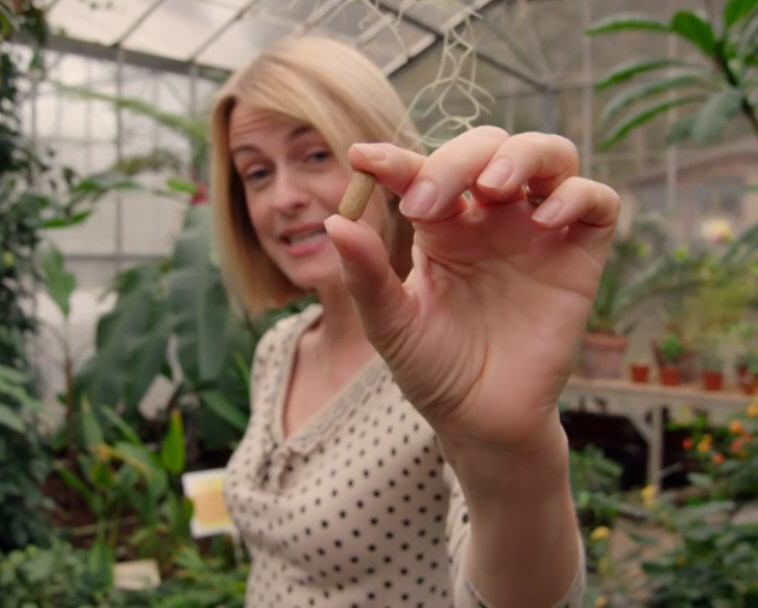Michael Mosley “Now, many of us make a resolution to cut back on alcohol, a heroic few attempt to have a dry January, something that requires a supreme act of willpower. But for those of us with a more modest aim of just cutting back a bit on the booze , could there be an easier way? Well, some brand-new research coming from the United States suggests an ancient Chinese remedy, Kudzu, might be able to help.”

Gabriel Weston “This tablet is made from the root of the kudzu plant, Pueraria mirfica, a type of vine native to south east Asia and there are some intriguing new studies that suggest taking it could help us reduce our alcohol consumption without us even realising it.
It’s a plant with a long history, as Professor Williamson explains”
Professor Elizabeth Williamson “The ancient traditional use’s. going back for 2,000 years, were for coughs and colds and also for high blood pressure, angina. It’s also for, there’s a long history of its use, to help prevent alcohol abuse”
Kudzu to help Curb Drinking - Beating the Booze
Gabriel Weston “And what’s its effectiveness against all these things?”
Professor Elizabeth Williamson “It’s used, routinely, in China for people with heart conditions and that’s been extensively tested and as far as the alcohol is concerned, the history of that is documented as far as 600 AD.”
Gabriel Weston “and it’s not just ancient tradition, there’s some new scientific research that suggests kudzu might be effective in curbing alcohol consumption. But, does that mean we should all start buying it?
I must admit I’m doubtful. Sure there are some tantalising, reputable studies from Harvard, no less, but those were conducted on lone drinkers in laboratory conditions. Hardly equivalent to a boozy night out.
What we want to do, is test kudzu in the wild, so to speak. With real-life scenarios for the very first time.
We’ve recruited a group of volunteers from companies in Reading, willing to have two nights out, in the name of science. Two hours ago, we gave them all some pills. Some got kudzu and others a placebo. None of them knows which they’ve taken.

Now, they’re going to have access to our bar for 90 minutes and can have their choice of beer, wine or spirits and we’re monitoring how much each person consumes.
In America, studies have shown taking kudzu makes people drink more slowly and so drink less. This is thought to happen because of a group of active molecule known as isoflavones and the theory is that these isoflavones help deliver alcohol to the brain more quickly so people feel its effects sooner and hence, slow down. But, will this work in the real world?
One week later our volunteers are back at the pub to repeat the experiment. Those who had the placebo last time have been given kudzu this time and vice-versa. Again, they don’t know which pills they’ve taken and we’re monitoring the units they’re drinking to see if the kudzu is having any effect.
When you were drinking as a group, without kudzu, you had 7 units per person. And when you took the kudzu, you had 5.6 units per person. Which means that, overall, you drank about 20% less when you took the supplement.
I’m both surprised and encouraged by the results of our tests and really didn’t expect the kudzu to make such a substantial difference. But, before you rush out to buy kudzu extract, it’s a case of buyer beware. Our tests and those in the US involved each person taking over 500mg of the active ingredient. But, we couldn’t find any brands of kudzu available that had the governments THR mark that guarantees they contain what they say on the label. We had to have ours laboratory tested to get the right dosage and they didn’t contain the amount they said on the packet.
Maddeningly, there isn’t yet a reliable product on the market but, it’s an enticing prospect. One that could make it easier to stick to our resolutions and cut back on the booze.
References
All of the above information came from the BBC series Trust Me, I’m a Doctor
